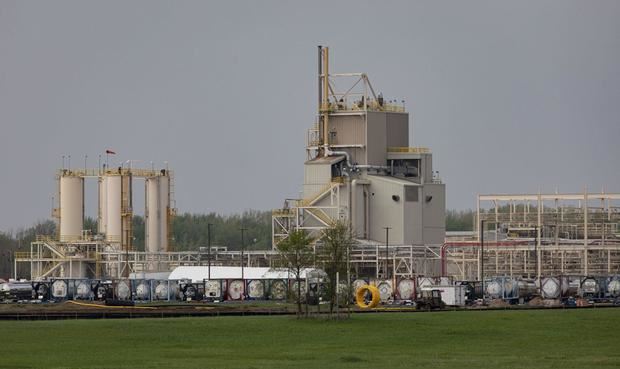
A proposed federal rule calls for forcing companies to disclose whether their products contain toxic "forever" chemicals, the government's first attempt at cataloging the pervasiveness of PFAS across the United States.
The Environmental Protection Agency rule would require manufacturers to report many products that contain perfluoroalkyl and polyfluoroalkyl substances. They're a family of chemicals that don't degrade in nature and have been linked to cancer, birth defects, and hormone irregularities.
Companies would have to disclose any PFAS that have been manufactured or imported between 2011 and when the rule takes effect, with no exemptions for small businesses or for impurities or byproducts cross-contaminating goods with PFAS. Those disclosures would be available to the public, barring any trade secrets linked to the data. The EPA will finalize the rule in the coming months, agency spokesperson Catherine Milbourn said, then require companies to report back within 12 months.
The effort excludes pesticides, foods and food additives, drugs, cosmetics, or medical devices regulated under the Federal Food, Drug, and Cosmetic Act, Milbourn said. It also is essentially a one-time reporting and record-keeping requirement — and companies wouldn't need to provide updates.
Still, the chemical and semiconductor industries are grumbling about what the EPA estimated is a potential $1 billion cost to comply with the rule. The U.S. chemical industry says it generates more than $500 billion annually.
On the other side, environmental health activists say the data collection exercise would be flawed, as it accounts for only a tenth of the more than 12,000 PFAS chemicals, which are used in everything from nonstick cookware to kids' school uniforms. Moreover, they say, it wouldn't stop PFAS from making their way into the air, waste, or consumer products, nor would it clean up existing contamination.
Congress gave the EPA the power to track PFAS chemicals in 2016, when it revised the Toxic Substances Control Act. Then a bipartisan effort in 2019, which Republican President Donald Trump signed into law, called for the EPA to inventory PFAS. However, health activists warn that unless Congress overhauls U.S. chemical laws to give the EPA and other agencies more power, PFAS will continue to threaten humans and the environment.
These so-called forever chemicals went from marvel to bête noire in just 50 years. When PFAS debuted, they were revered for making Teflon pans nonstick and Gore-Tex jackets waterproof. They are effective at repelling water and oil yet so durable they don't break down in the natural environment. That strength has become their downfall, as the chemicals accumulate in landfills, soil, drinking water supplies, and, ultimately, human bodies. As scientists learn more about PFAS' toxic nature, governments around the world have set limits or imposed outright bans.
READ FULL ARTICLE